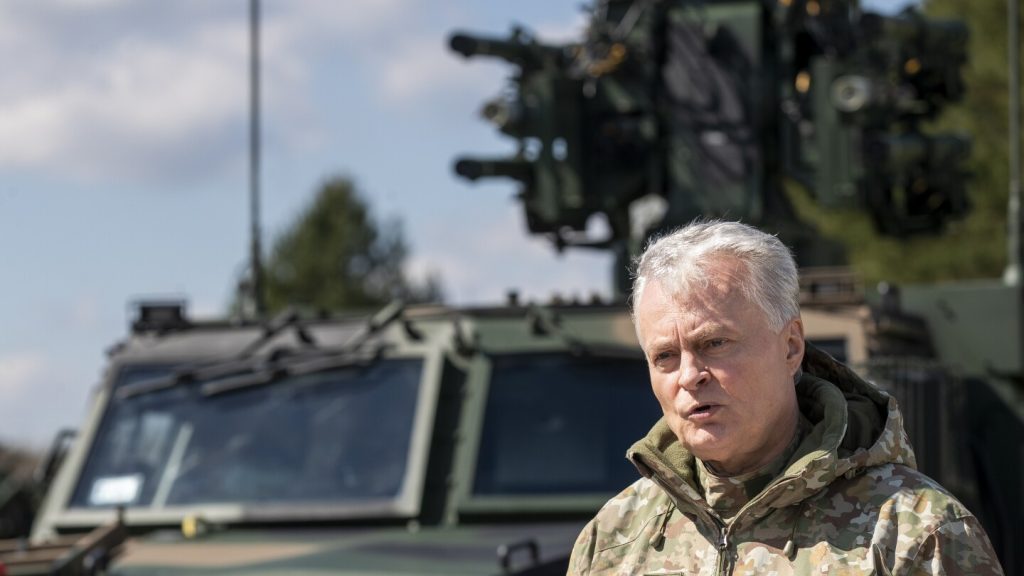Lithuanians are participating in a presidential election amidst growing fears about Russia’s intentions, especially in the strategically important Baltic region. The incumbent, Gitanas Nausėda, is favored to win another five-year term, but with eight candidates running, it may be challenging for any candidate to secure the necessary 50% of votes to win outright on Sunday. A runoff may be held on May 26 if this occurs. The president’s responsibilities in Lithuania’s political system include overseeing foreign and security policy, as well as serving as the supreme commander of the armed forces, highlighting the significance of this election given the rising tensions between Russia and the West.
The Baltic states of Lithuania, Latvia, and Estonia, who declared independence after the collapse of the Soviet Union, are closely monitoring Russia’s actions, particularly in northeastern Ukraine. The Russian exclave of Kaliningrad, situated between Lithuania and Poland, adds to the concerns in the region. Lithuania’s strategic location on NATO’s eastern flank further underscores the importance of the president’s role, especially amid the ongoing conflict between Russia and Ukraine. The results of this election hold significant implications for the future relations between Lithuania and its neighbors.
The candidates in the election include the moderate conservative incumbent, Gitanas Nausėda, and his main challenger, Ingrida Šimonytė, the current prime minister and former finance minister. Another contender, Ignas Vėgėlė, a populist lawyer, gained popularity during the COVID-19 pandemic for opposing restrictions and vaccines. In addition to the presidential election, there is also a referendum on the ballot, asking whether the constitution should be amended to allow dual citizenship for Lithuanians living abroad. This issue is crucial as the population of Lithuania has declined in recent years, and allowing dual citizenship could have significant implications for the diaspora community.
One noteworthy development in this election is the decision by the Organization for Security and Cooperation in Europe (OSCE) to decline Lithuania’s invitation to observe the election. The Lithuanian government sought to exclude monitors from Russia and Belarus, citing them as threats to its political and electoral processes. However, the OSCE’s Office for Democratic Institutions and Human Rights stated that Lithuania was violating the rules it agreed to when joining the organization. Observers must adhere to a code of conduct pledging political neutrality, and failure to comply results in their disqualification. This decision highlights the complexities and challenges surrounding international observations of elections.
As the voting process unfolds, the results are expected to be announced late Sunday night. The outcome of this election will not only determine the future leadership of Lithuania but also have wider implications for the region’s security and foreign policy. With growing concerns about Russia’s actions and the ongoing conflict in Ukraine, the election of the next president will play a crucial role in shaping the country’s relations with its neighbors and the broader international community. The decision on dual citizenship and the candidates’ stances on key issues will also have a lasting impact on Lithuania’s domestic and foreign policy agenda for the coming years.


